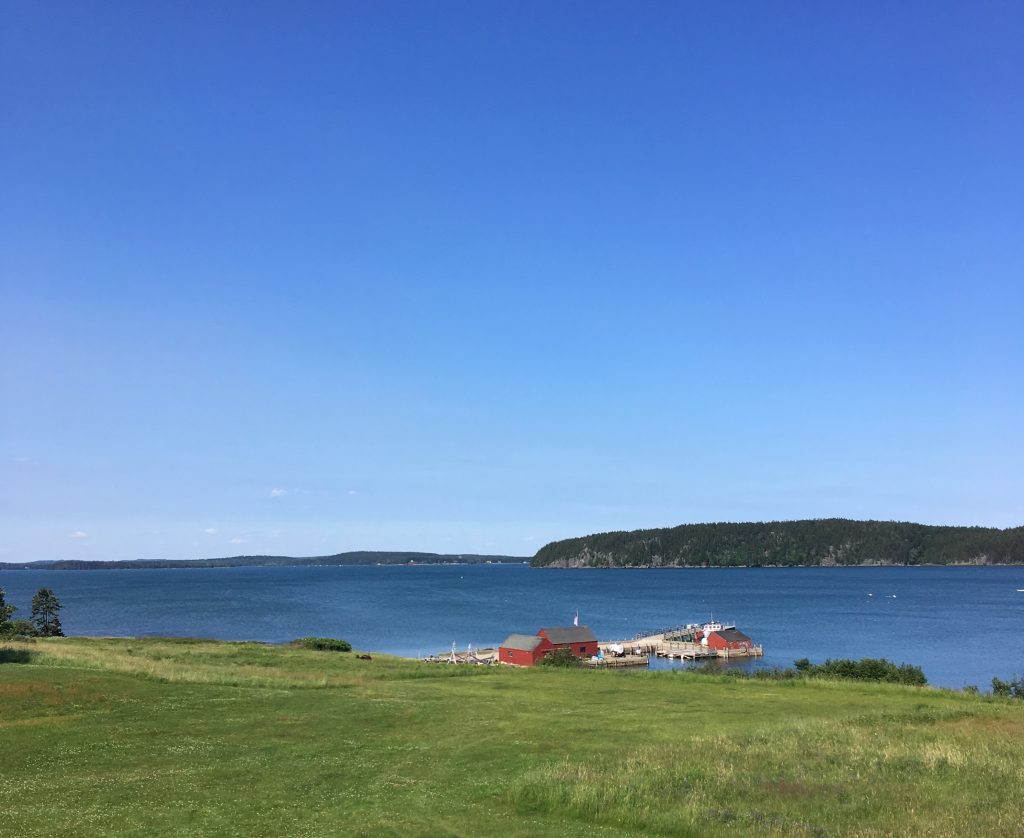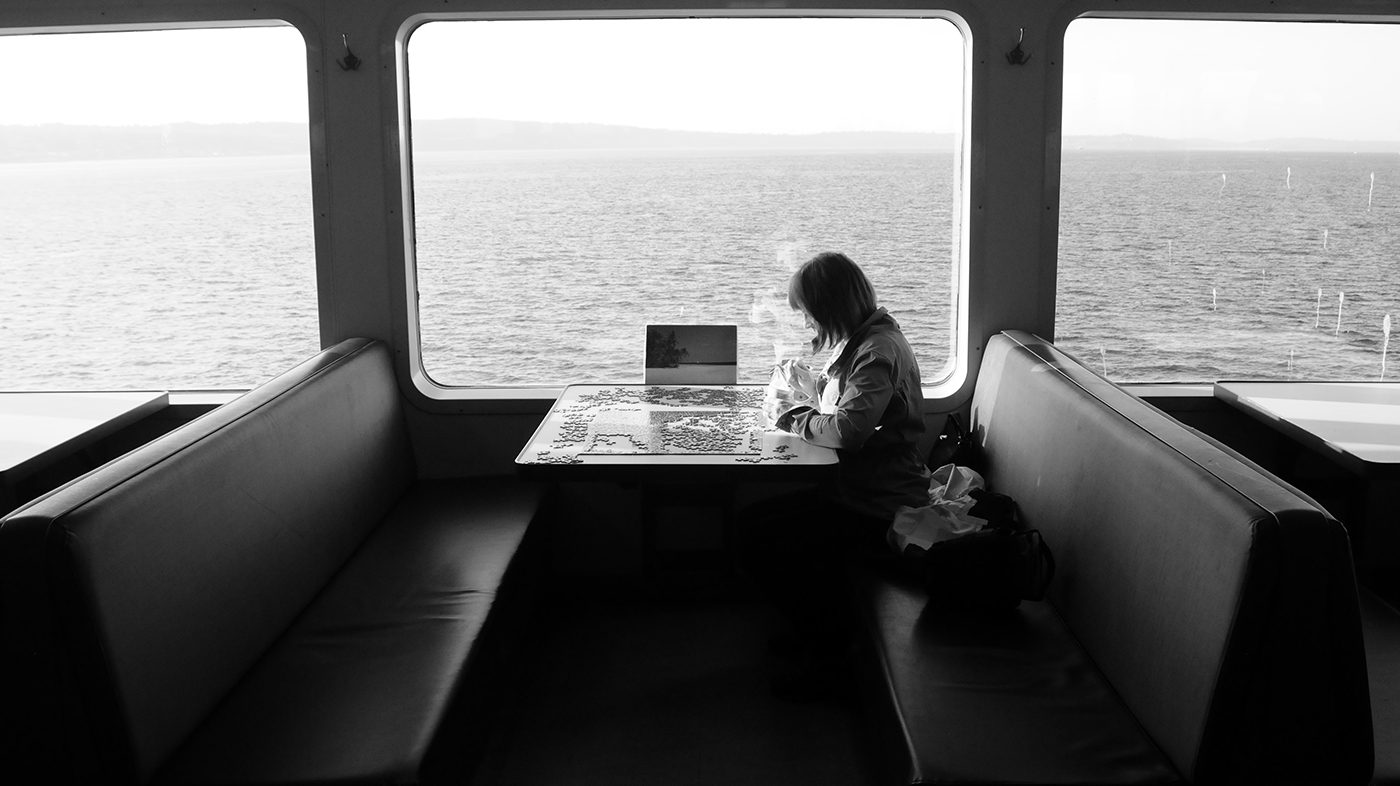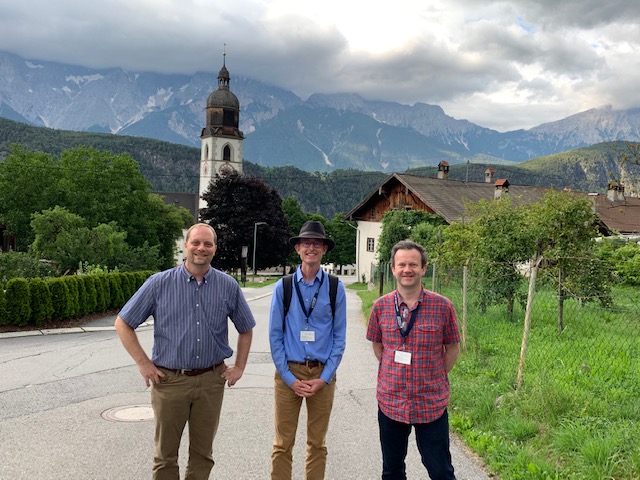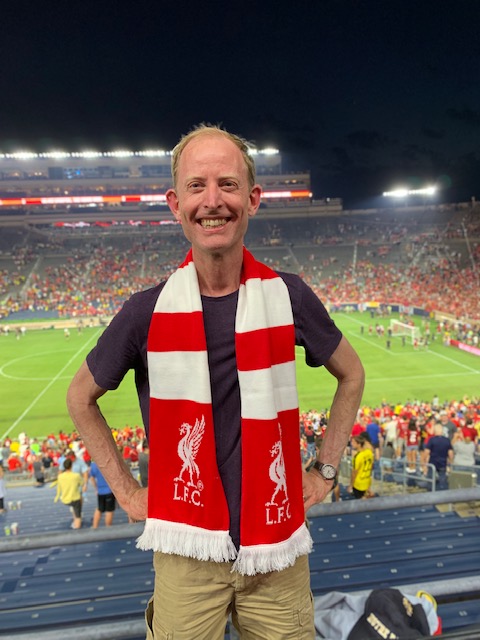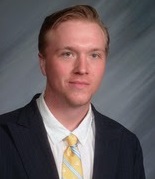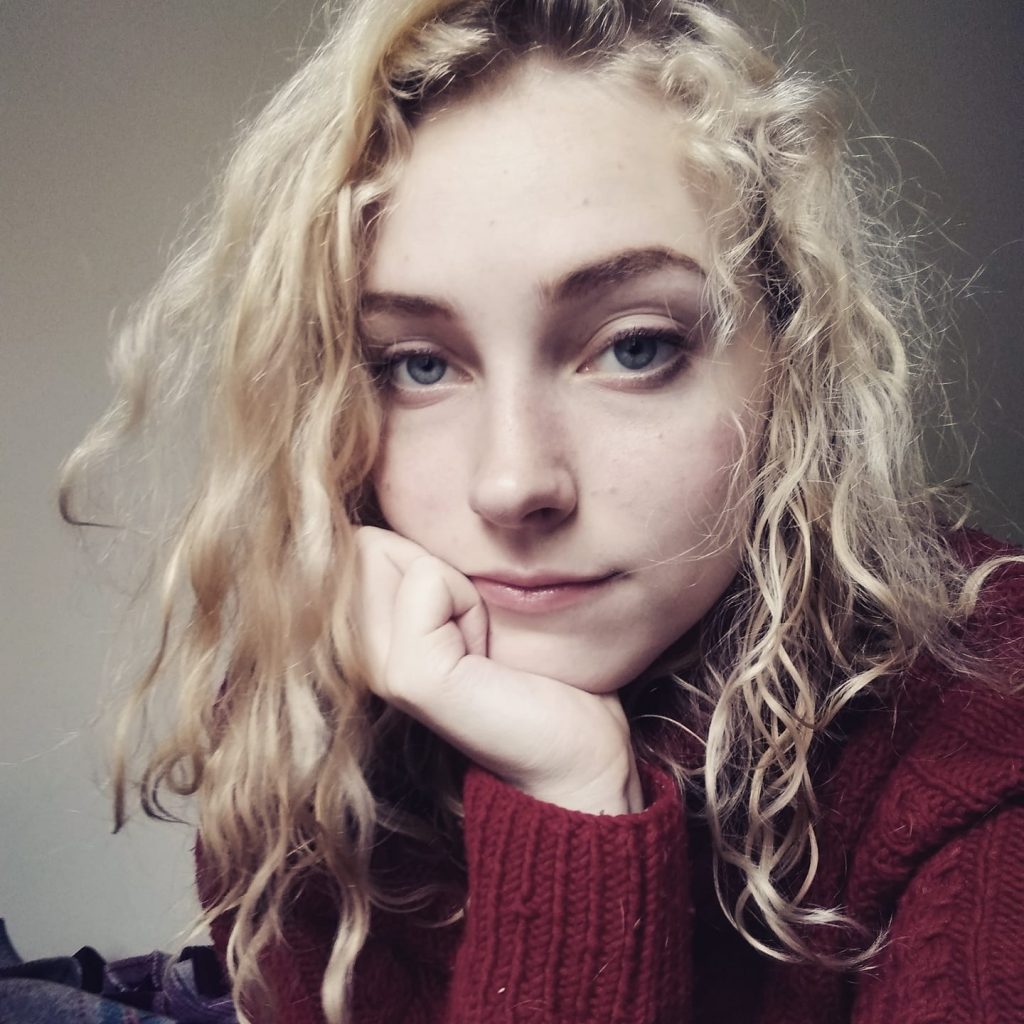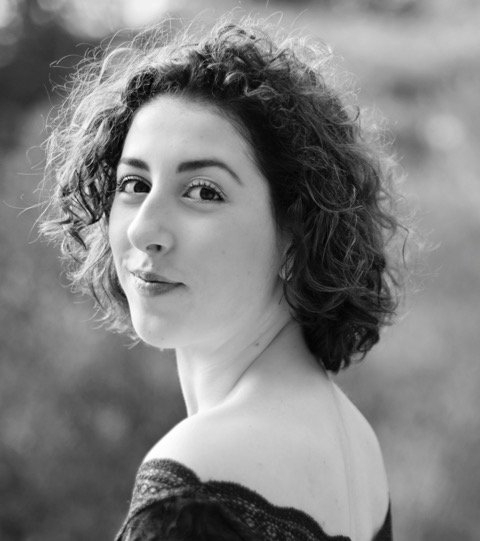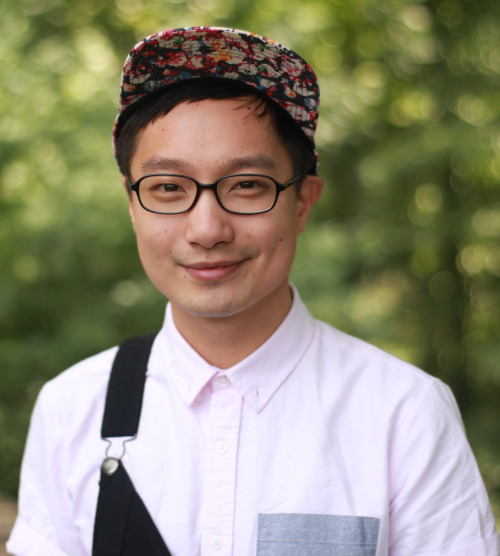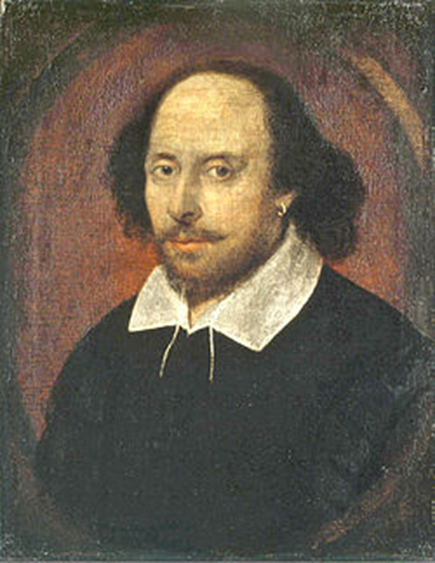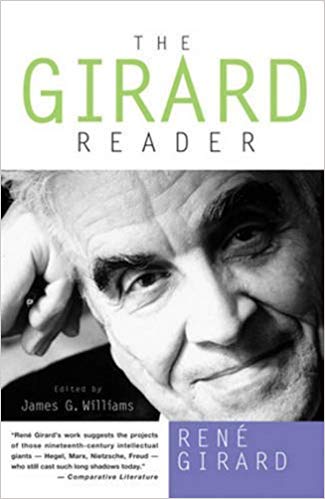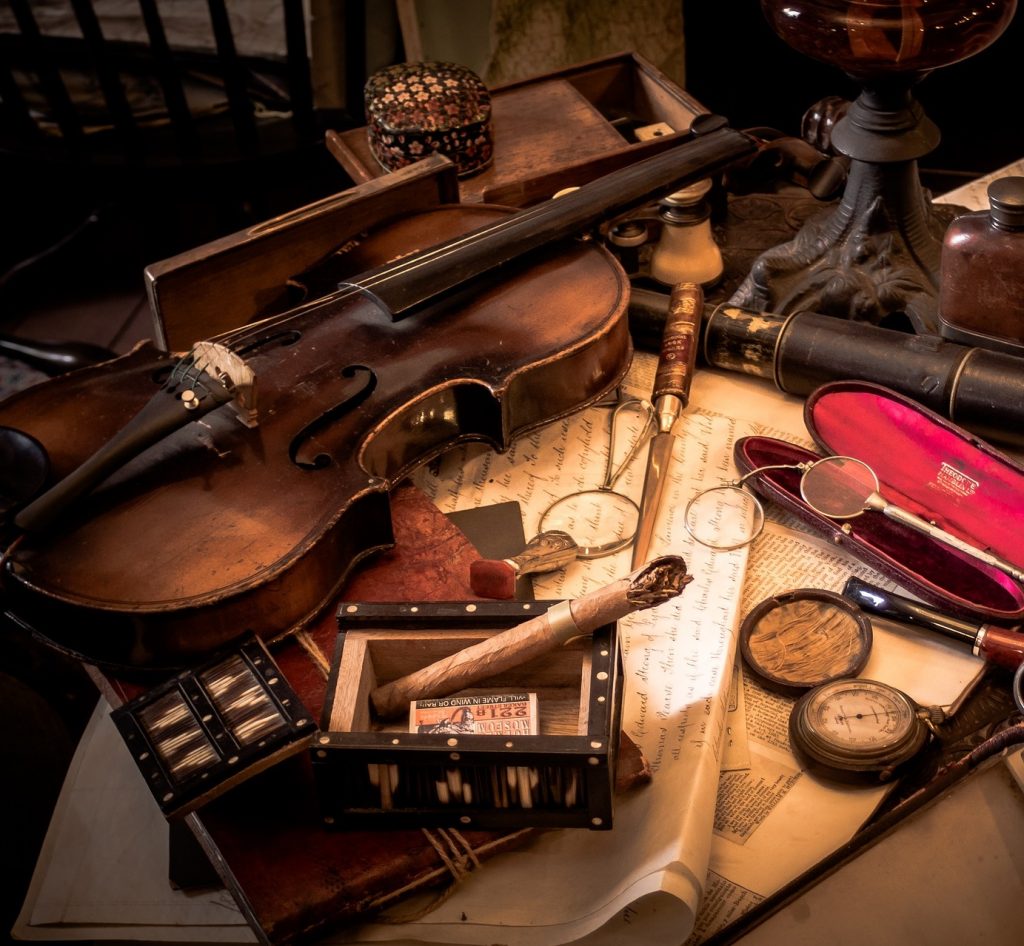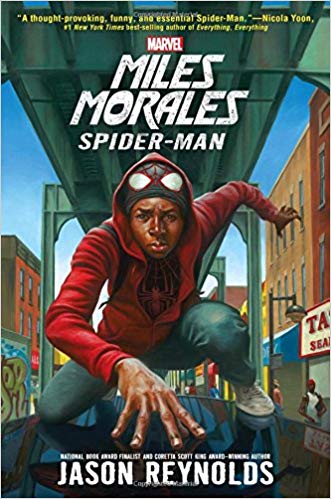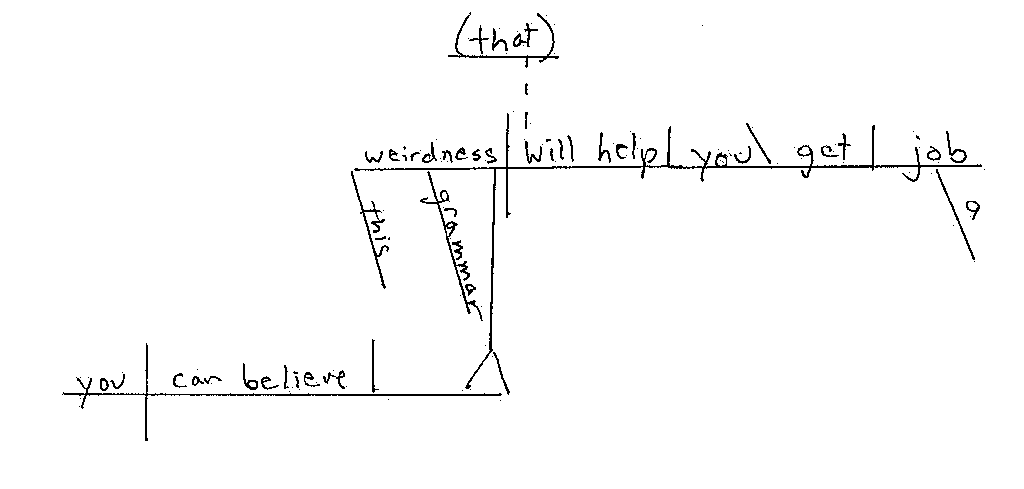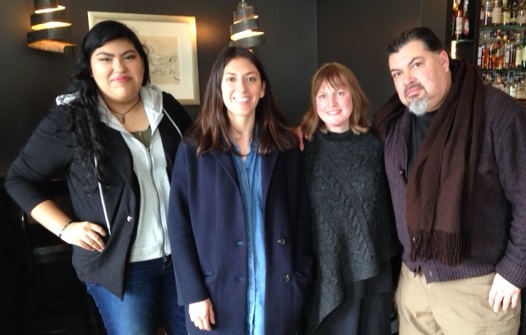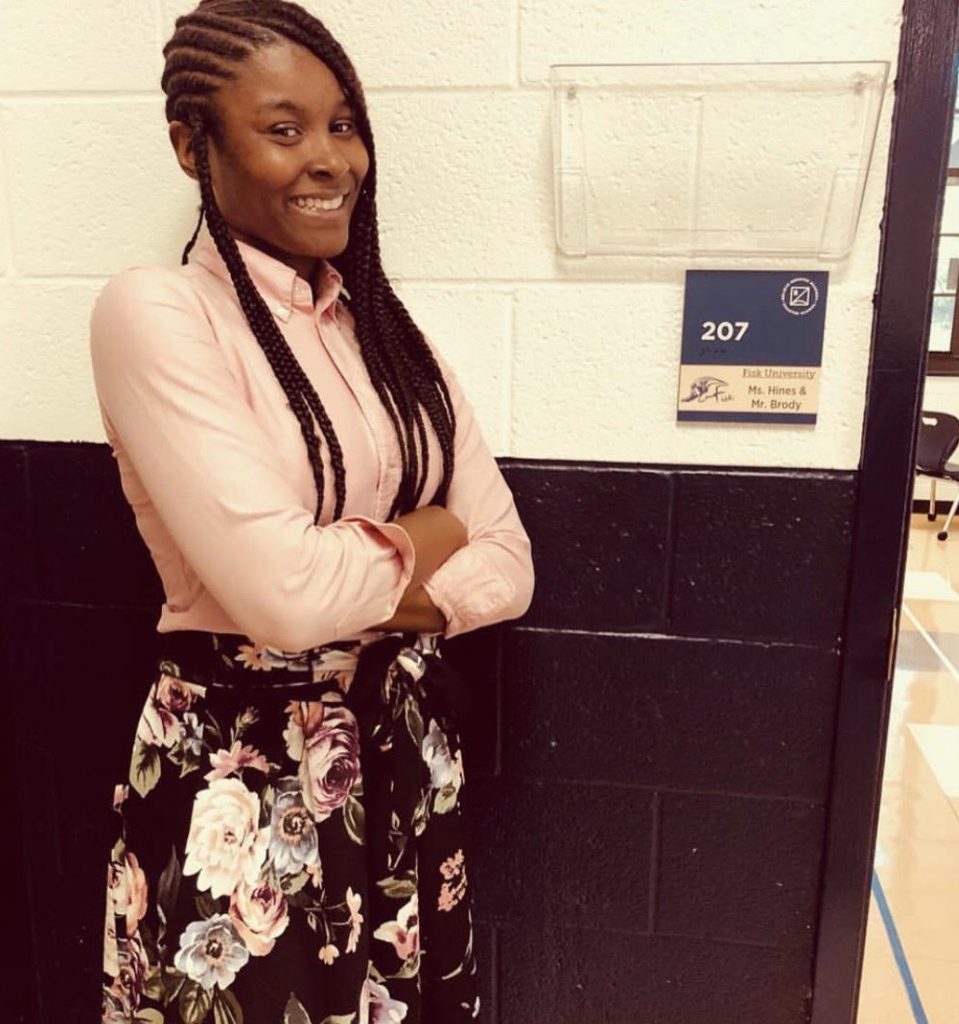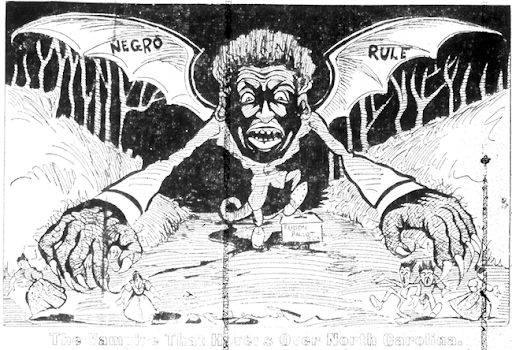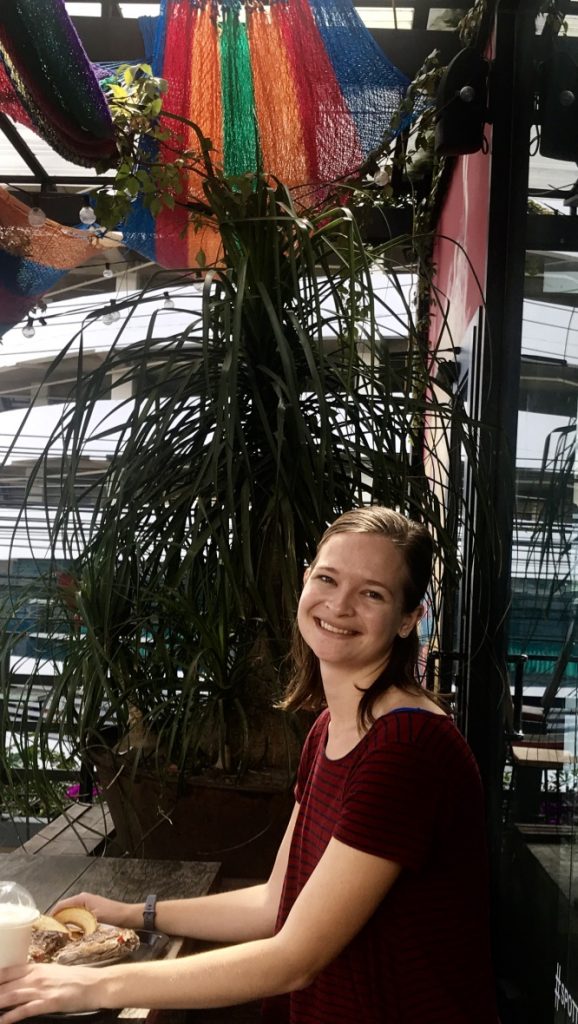Welcome back, people of Hope, and welcome class of 2023! It has been a summer of big changes in the English Department. We’ve said a fond goodbye to retiring professors Beth Trembley and Dianne Portfleet, we’ve regretfully seen Prof. Kendra Parker and office manager Raquel Niles go off to new jobs with our good wishes, and we’ve said “see you in a while” to faculty on leave and on sabbatical. We’ve also been joined by four additions to the faculty ranks: Susanne Davis, Lisa McGunigal, Emily Tucker, and Michael Brooks. Please say hello if you see them!
Here are a few little updates on our hard work and play this summer as we waited for the students of Hope to come back again.
Rhoda Burton drove up to Canada to take care of a Mennonite auntie who had a hip replacement. One evening Rhoda got Aunt Helena, aged 94, talking. She said dreamily that when the four littlest were sleeping head to toe like sardines in a shared bed, their dad had awakened them. “Come girls! I have a surprise!” In the barnyard he had spread a blanket. And there they all saw for the first time the aurora borealis.
This dad had once cut a single strawberry into seventeen pieces so they could each have a taste. Which was better, the aurora borealis, or the strawberry? “A dad who wakes you up at 2:00 a.m. to give you a memory—that’s forever.”
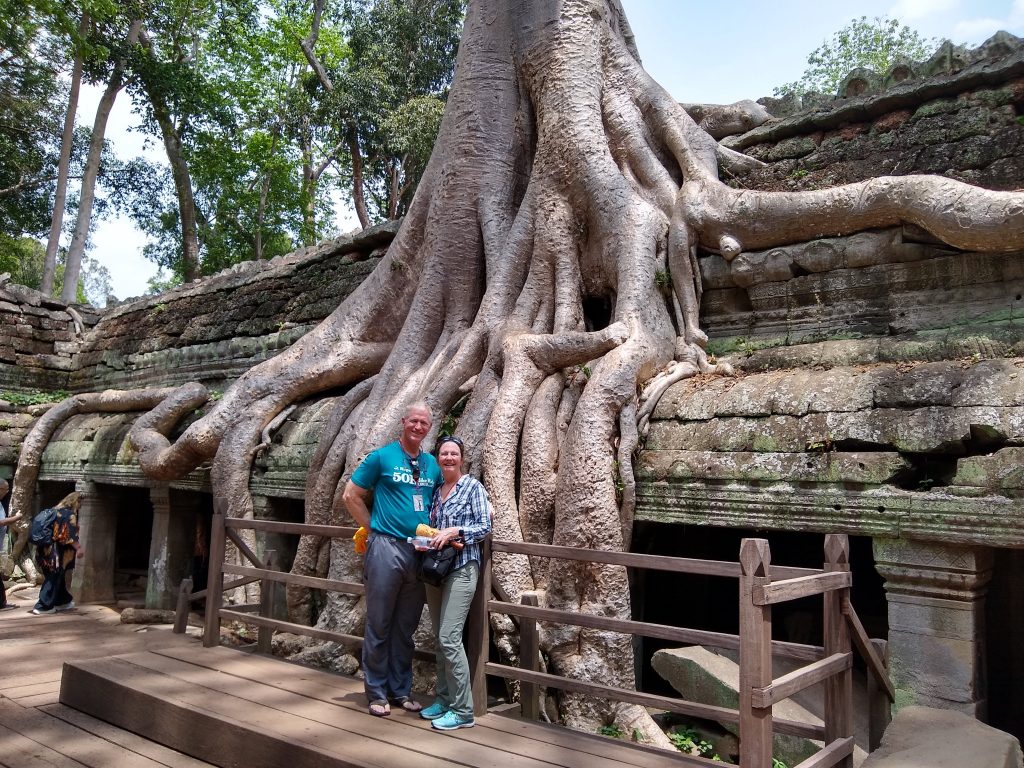
Marla Lunderberg had some big adventures. “Pop culture might let you recognize the temple in this photo as a setting from Tomb Raider. My own response to the immensity of Ta Prohm Temple in Angkor, Cambodia, and to the even greater power of the trees growing through the walls, is to be humbled at the small part I play in the passage of time on this earth. This past May, I visited Japan and South Korea with three colleagues as we sought to increase Hope’s global connections; afterwards, my husband joined me to explore some of the wonders of Vietnam and Cambodia.”
Stephen Hemenway ventured forth to direct and teach 82 students for May and June terms in the Hope College Vienna Summer School–his 44th year in this role. Cultural highlights included the world premiere of Peter Pan ballet in Vienna, the Laterna Magica production of The Little Prince in Prague, and a stunning performance of opera Tales of Hoffmann in Bratislava. Climbing the Austrian Alps, dinner-boat rides in three countries, and a musical performance by 16 Hope students were most memorable. Visits to Mauthausen concentration camp, the European Union office, the Gymnasium Kundmangasse, the Habsburg tombs, and Mozart’s house made classes come alive.
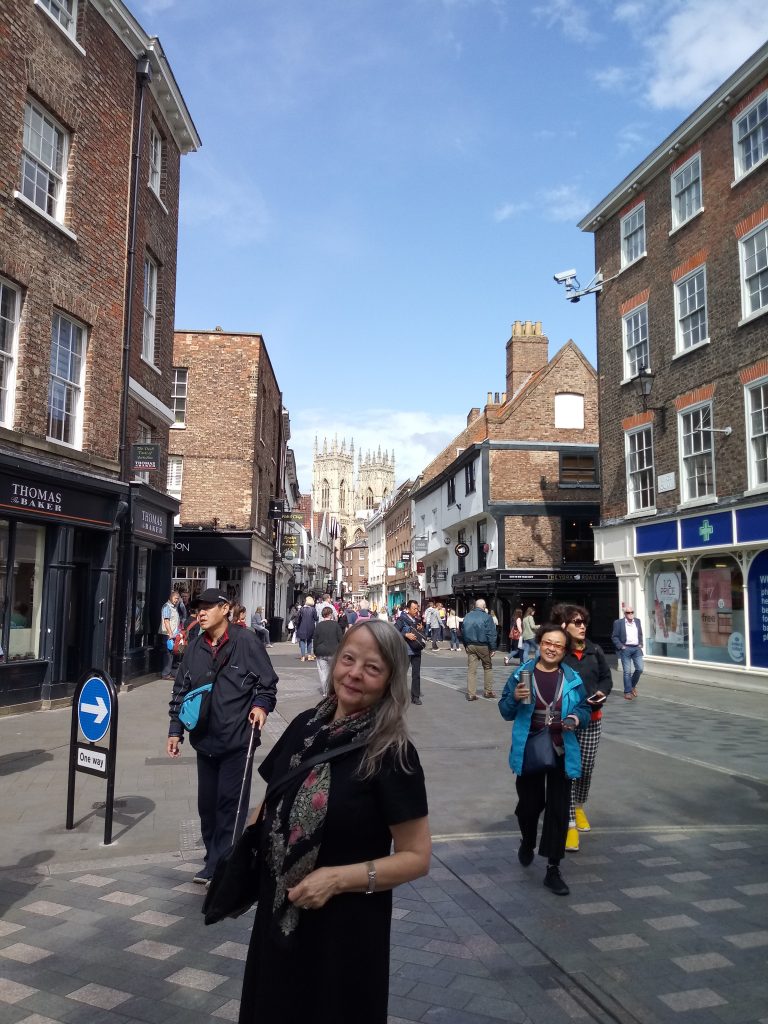
Kathleen Verduin writes in: “What a summer. Spent ten days at Dartmouth, Harvard, and the Massachusetts Historical Society doing more research on the American interest in Dante, and finished my essay on Dante and James Russell Lowell. And then a two-week jaunt to England!”
Susanne Davis, one of our visiting professors, shared: “This summer I wrote half of the second draft of my novel in progress, Stray Dog Watch Over Us, taught an online graduate creative writing class for Southern New Hampshire University, and started a Youtube channel: “How to Create a Writer’s Life.” Also, this summer, the Connecticut Press Club gave first place to my essay ‘The Power of Education’ originally published in The Fredericksburg Review.”
Pablo Peschiera is here with an important pupdate: “The best parts of summer were spent with either my mother (who—with my beloved stepfather, John—moved last year to live near me), my daughter Violet, or my dog, Stanley. Violet stayed with me all summer and worked in an ice cream truck (I got no free ice cream out the deal) before she left for Amsterdam to study sociology. Here is a short video Violet and I filmed of Stanley being cute.”
We received a joint update from Jesus Montaño and Regan Postma-Montaño:
The bests from a strangely epicurean summer.
Best food was Thai by Day (Day is the name of the owner; they also are open at night). Best sweets belong to the cookies from Midnight Cookie Co. that we had for Regan’s birthday party. As their name suggests, they open late and stay up late.
Favorite beer: Even More Jesus by Evil Twin Brewing; Tropic Haze by Silver City, a close second. Favorite scene: outside of Port Angeles, WA, overlooking the Strait of Juan de Fuca—Victoria, BC in the background. We saw a whale on the ferry trip back.
The best sandwich of the summer season was the one Jesus had after his emotional paper at the Children’s Literature Association conference. Several people cried in the audience; he did not blame them: children separated from their parents is heinous, whether the ones happening now or the ones that happened once upon a time.
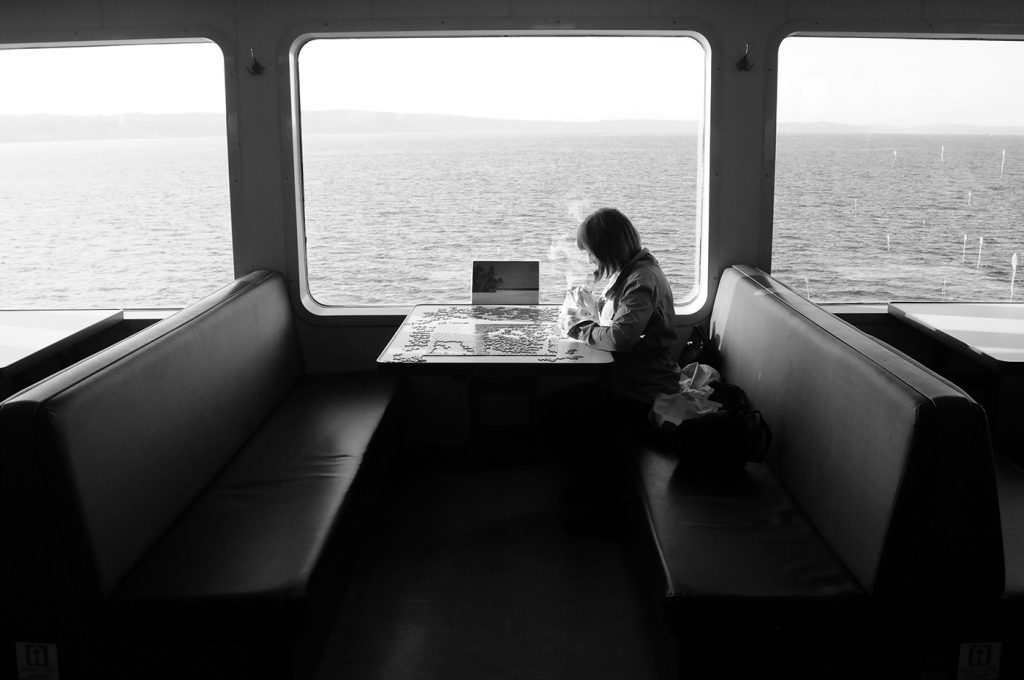
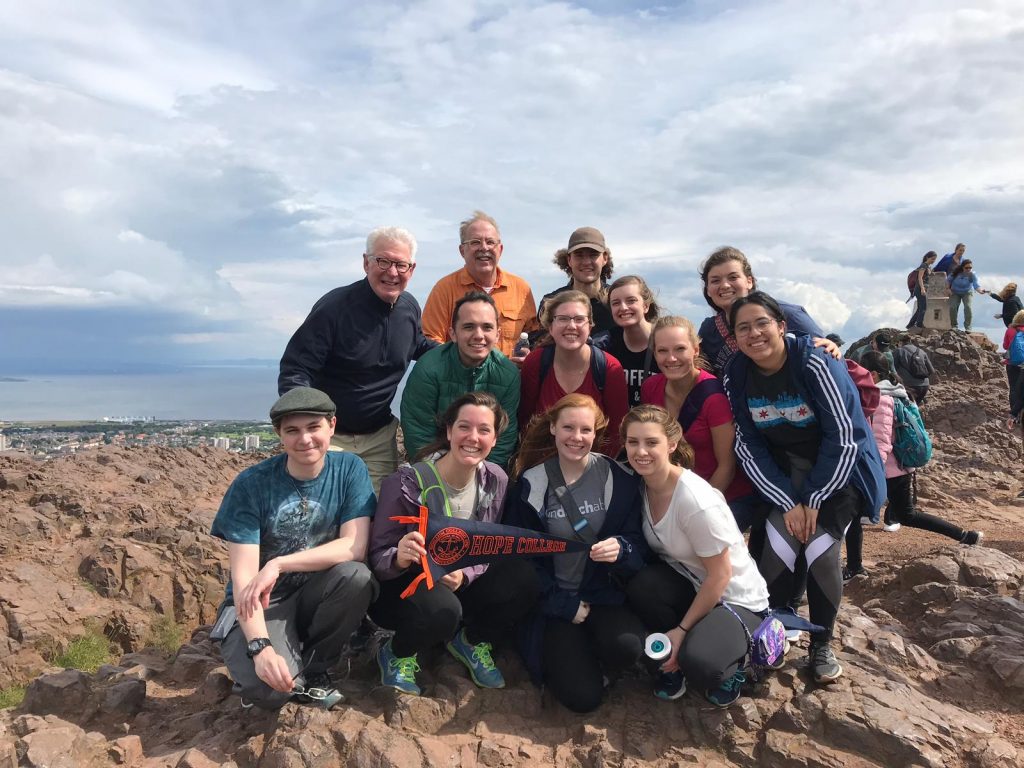
Bill Moreau writes: “This past May I taught a Senior Seminar class on Hope’s campus. It ended on Friday, May 31. At 8:30 AM on Saturday, June 1, I left campus with Professor Tony Donk of the Education Department to teach a June Term in Liverpool, England. On one of our weekends, we ventured to Edinburgh, Scotland. This is our group photo atop Arthur’s Seat, a (thankfully inactive) volcano just outside of the city. It was breezy and our location allowed a beautiful view of both Edinburgh and our group of fantastic students (two of whom are English Secondary Education majors).”
Another traveler was Curtis Gruenler: “I attended the annual meeting of the Colloquium on Violence and in Innsbruck, Austria, where I presented with Prof. Dennis Feaster from the Social Work program on ‘Positive and Negative Mimesis in Communities of Care for Children with Intellectual Disabilities.’ The conference included a trip to Stams, site of a thirteenth-century Cistercian monastery. I also got to attend the first soccer game ever played in the University of Notre Dame’s stadium, a friendly between Liverpool and Dortmund, with my son Sam, who is starting his sophomore year there.”
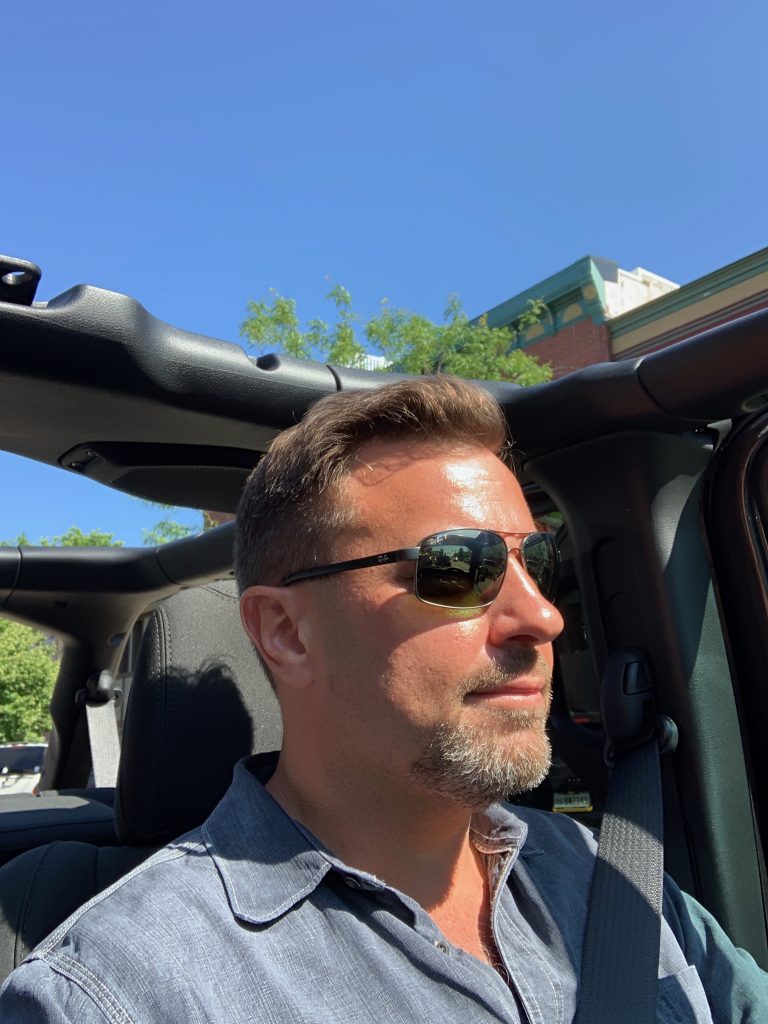
William Pannapacker shared: “I taught ‘Banned Books’ in May, June, and July, continued directing the Mellon Grand Challenges Initiative (now exploring a two-year extension), and developed a new proposal on community-based partnerships. ‘Whitman at 200’ appeared in the North American Review, and my Twitter satire project now has nearly 74,000 followers (‘I do not have a lawn, but get off it nonetheless’). I took my three daughters to a 20-year reunion in Philadelphia and spent as much time with my family as possible. Also, I joined Grace Episcopal Church, became more active at CrossFit, and kept the top off the Jeep all summer.
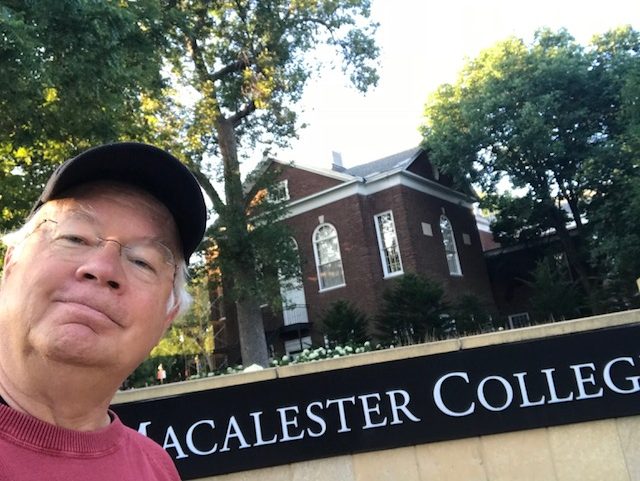
Gregory Rappleye “spent the early summer finishing up my (5th) full-length poetry manuscript, Ventrilo, which is in circulation among the presses. A number of the individual poems have already done well on the contest circuit, so I am hopeful. Toward the end of July, I delivered a poetry reading in St. Paul, Minnesota, and then spent some extended writing time at Macalester College, where I worked on the continuing re-write of Ugarte, my (1st) novel. Before flying back to Michigan, I put the first three revised chapters into envelopes and email attachments and sent them off.”
For Mike Owens, this was the “Summer of T-Shirts.” “Between early June and mid-August, our family of four collected eighteen, none of which we purchased in a conventional retail transaction (and none of which were stolen). In the spirit of ‘Been there; done that; got the t-shirt,’ we have an assortment of travel, race, summer camp, college recruiting, and non-profit foundation tops, each of which has its own story.”
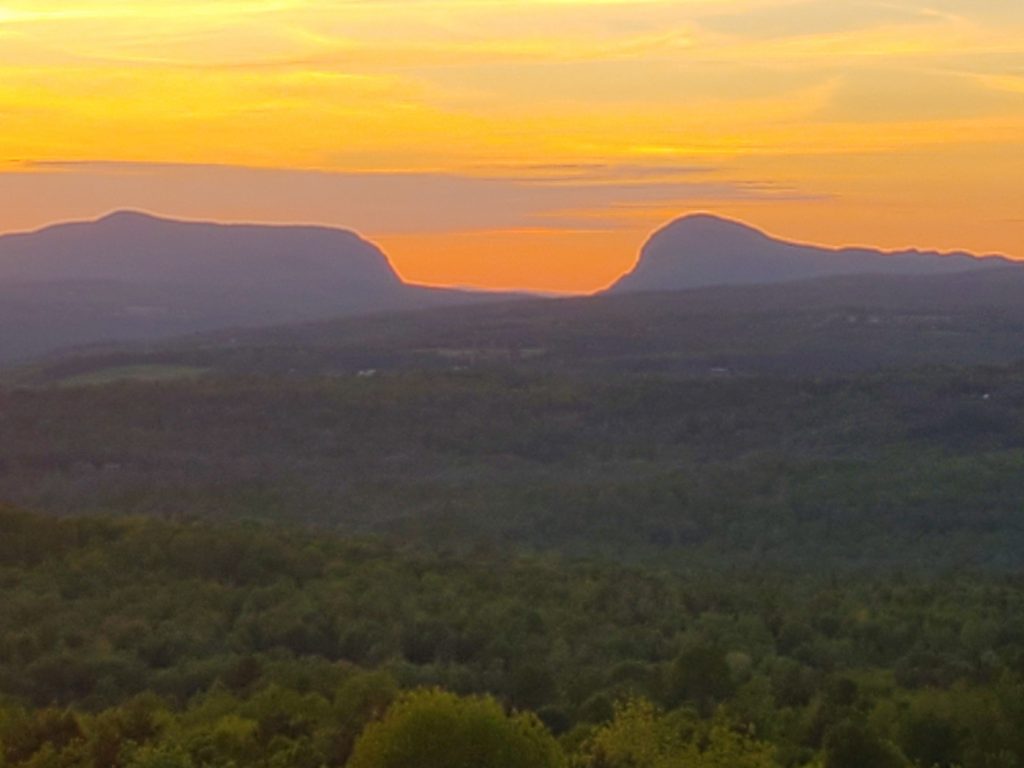
Sunset on Willoughby Gap, Vermont 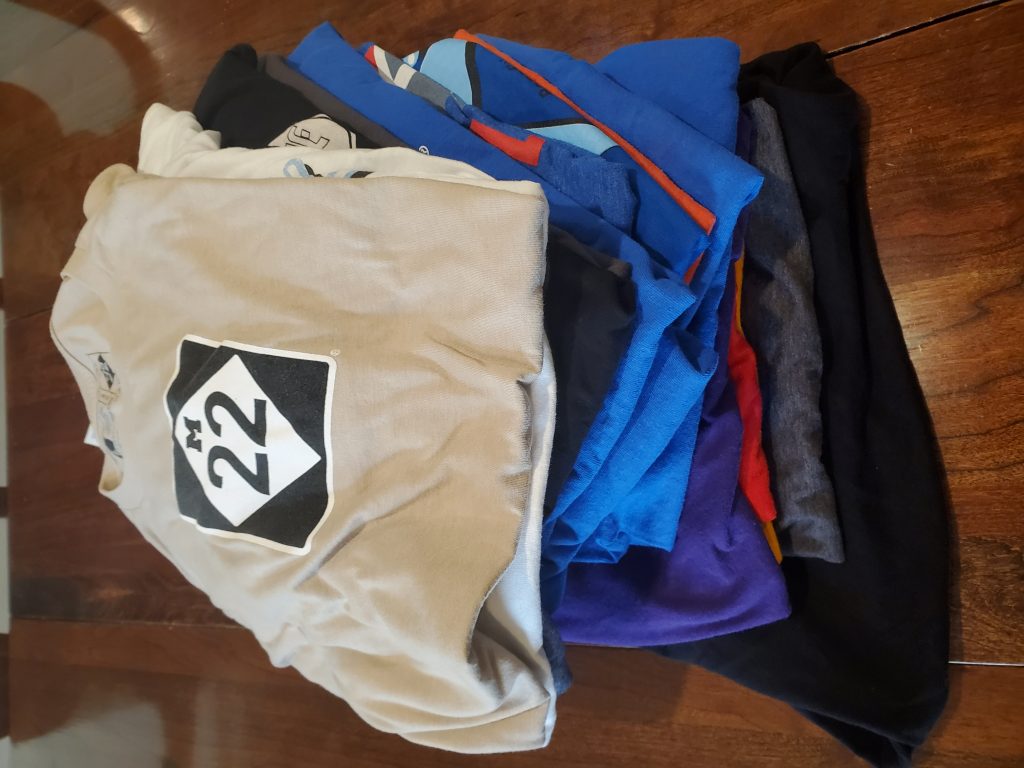
And Natalie Dykstra, still away on an NEH Fellowship, sent this update: “I’ve had some adventures this summer, including a return trip to Paris with a faculty/student research team at the American Library – read that story here. The highlight has to be the long weekend my husband and I stayed on Roque Island, off the coast of Maine, owned by the descendants of the woman I’m writing a book about – Isabella Stewart Gardner. The island is a working farm with sheep, hayfields, and milk cows, and a wildlife and forestry research site. To wake up to this view with its sea breezes in the mornings was a little slice of biography-writing heaven.”
